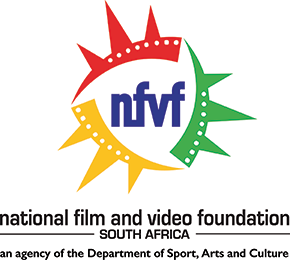
Study reveals the South African film industry has a positive Economic Impact on the economy.
Johannesburg, 14 June 2017: The National Film and Video Foundation (NFVF) today released findings of their second Economic Impact Assessment study which reveals the industry’s economic contribution to the country’s GDP over a four-year period. The study, conducted by Urban Econ in the 2016/17 financial year, identifies and quantifies the economic impact of the film and television industry between January 2013 to March 2017.
This study is a follow-on to the first (baseline) study released by the NFVF in 2013. Results from this four year study reveals that, during the 2016/17 financial year, the film industry in South Africa had a R5.4 billion contribution to the GDP, compared to the R3.5 Billion in 2013. In total, the operations of the film industry in South Africa raised the level of production by approximately R12.2 billion, an overall positive impact.
The total investment or expenditure made in the South African film industry in the 2016/17 financial year resulted in the following economic benefits:
An increase by a multiple of 4.9 in the employment multiplier for every R1 invested. Therefore, the success of the South African film industry is as a result of an increase in employment opportunities.
Contributed to the GDP by R 5.4 billion
A direct impact of R4.4 billion on economic production lead to an increase of approximately R12.2 billion on total production in the economy.
The net operational expenditure produced in the four financial years analysed in the study amounted to R17.5 billion.
The total number of jobs crafted amounted to 21.626
Over the last decade, the development of policies that promote economic growth have become an integral part of the public sector. The study further reveals key trends that play a role in the industry’s contribution to the economy. Film productions are seen to be Gauteng, Western Cape, and KwaZulu-Natal based with little to no income generating activity in the Northern Cape, Free State, North West, and Mpumalanga. 2
Common funders are public institutions such as the Department of Trade and Industry (dti), the NFVF as well as the Industrial Development Corporation (IDC) but the study also identified a rise in funding from the private sector. 32.4% of funding mainly equity financing, as well as commissioning and pre-sales. As a result of the high risk involved in issuing loans gap funding, at 8.5%, is the lowest form offered.
Feature films and documentaries comprise 27.3% and are the largest segments of the industry. Animation comprises the smallest segment of the industry at 3%. The South African film industry is among the oldest in the world and has taken leaps to secure its place in the global market. However, this fast growing 21st century industry remains at risk of leaving most of its human capital behind as it remains one of the most untransformed industries in the country.
Zama Mkosi, NFVF CEO said: “There is a strong need for transformation in our industry. If the industry is to continue the same growth trajectory that has been witnessed in recent years, it should focus on transformation. Gender representation in particular remains low. The number of black female-owned companies has remained stagnant. While this not only affects representation in terms of the content that is produced and protagonists therein, it stands to say that economically, PDIs are still not well-represented within the film and television sector. Another concern is that while we appreciate international investment, the level of skills development and transfer from these companies is not making a real impact when it comes to training.”
The study recommends that the industry focus on transformation, creating a skills development programme geared towards young, black film makers. “The aim of the programme would be to shift the current mind-sets of filmmakers from that film making is merely a form of art, to help them start focusing on film making as business, therefore obtaining the necessary skills required to run a business such as financial management and identification of new business opportunities,” Aifheli Makhwanya, Head of Policy and Research at the NFVF said. “We have found that persistent view among upcoming filmmakers is that filmmaking is just an art is one of the biggest hindrance to growth in this sector”.
To download the full report visit http://nfvf.co.za/home/22/files/2017%20files/NFVF%20Economic%20Impact%20Study%20Report_14_06_2017.pdf
Ends.
Editorial information:
For more information and media interview requests, please contact:
National Film and Video Foundation
Communications coordinator
Neo Moretlwe
Tel: +27 11 483 0880
Email: neom@nfvf.co.za
The Communications Firm
Zanele Nhlapo
Account Manager
Tel: +27 11 463 7550
E-mail: zanele@tcf.co.za 3
About the NFVF:
The National Film and Video Foundation (NFVF) is an agency of the Department of Arts and Culture that was created to ensure the equitable growth of South Africa’s film and video industry. We do this by providing funding for the development, production, marketing and distribution of films and also the training and development of filmmakers. In addition, the NFVF commissions research and produces industry statistics that provide both the public and stakeholders with valuable insights into the South African film industry.
NFVF’s main objectives:
Increase the number of South African films and Previously Disadvantaged Individuals (PDIs) producing them:
Increase audience access to South African films
Increase the number of people trained in the industry, particularly in areas of scarce skills
Promote the South African Film Industry locally and internationally
Promote social cohesion and the expression of the nation’s stories through film

